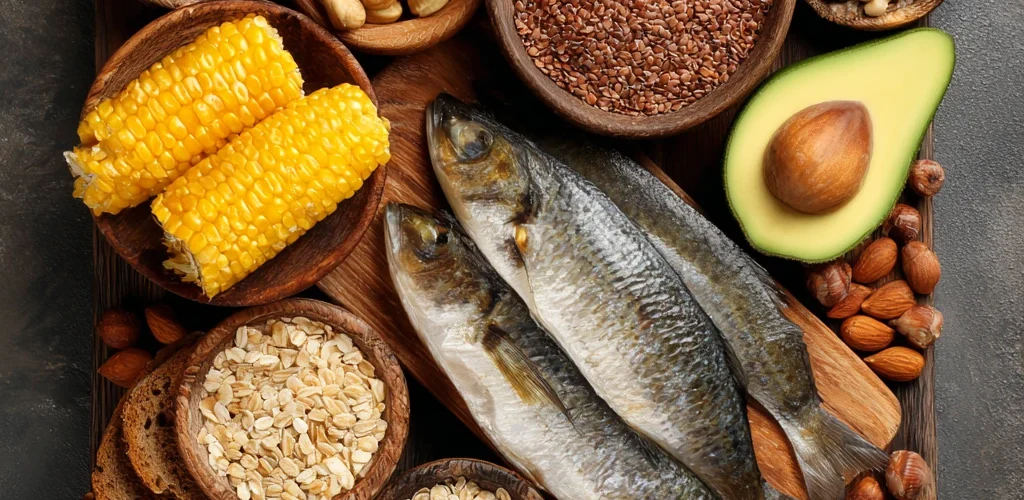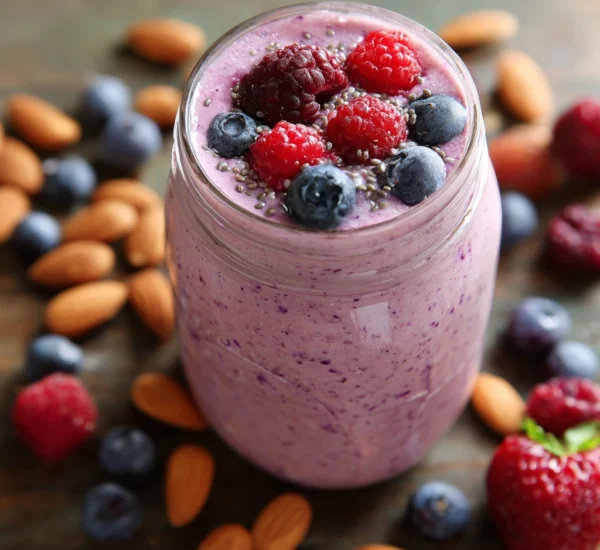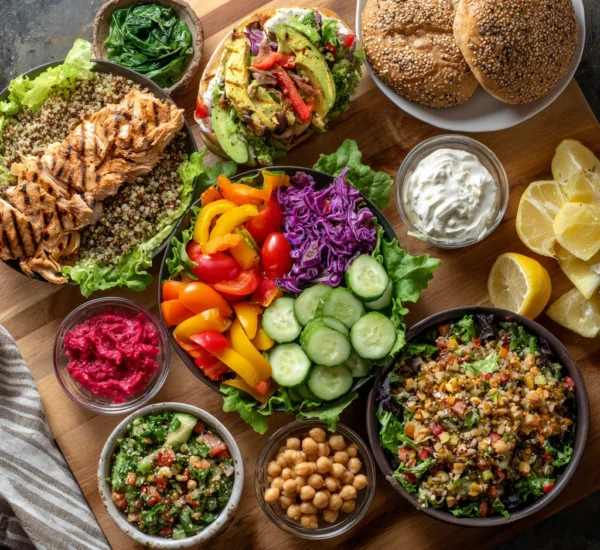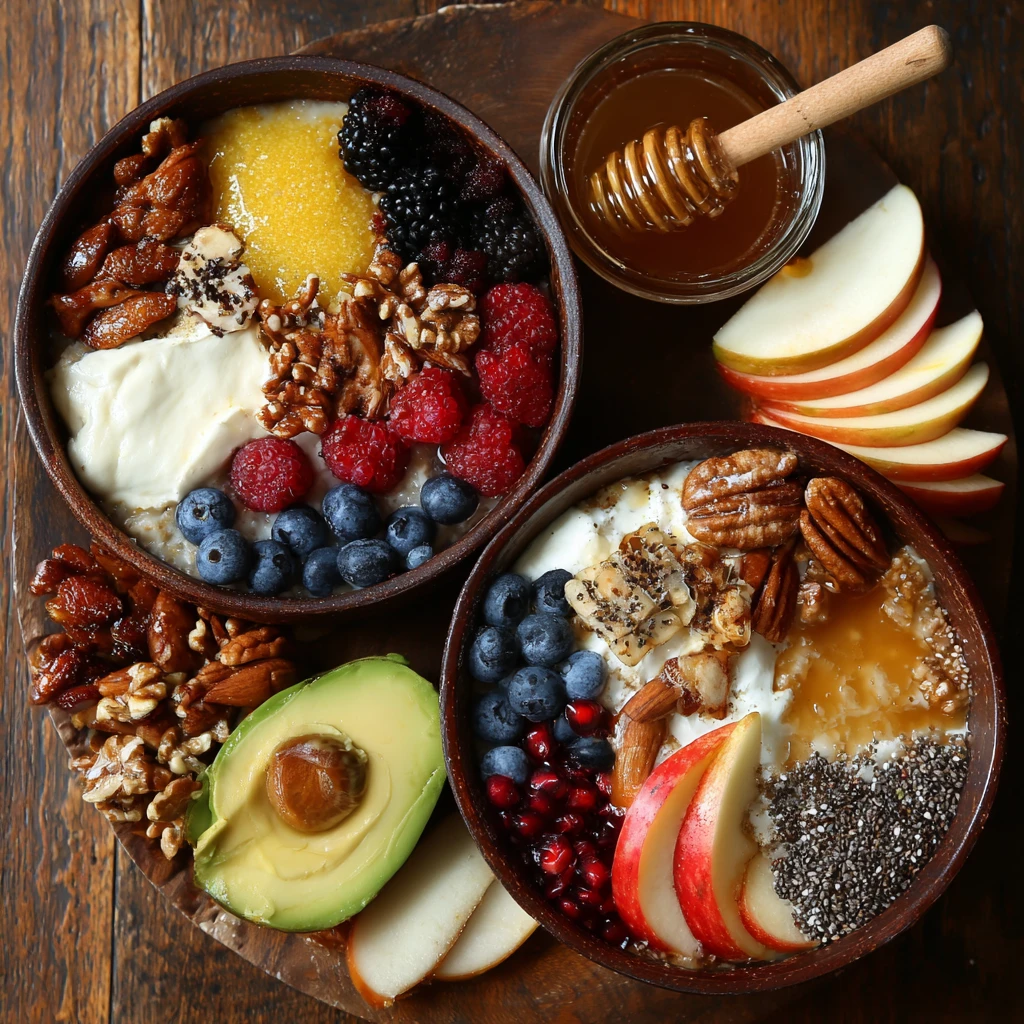Healthy Carbs That Fuel Your Body
Carbohydrates often get a bad rap, unfairly associated with weight gain and unhealthy eating. However, not all carbohydrates are created equal. In fact, carbohydrates are a vital macronutrient, providing your body with the primary source of energy it needs to function optimally. The key lies in choosing the right kinds of carbohydrates – the healthy ones that fuel your body efficiently and support overall well-being. This article will delve into the world of healthy carbohydrates, exploring their benefits and offering practical tips on incorporating them into your diet.
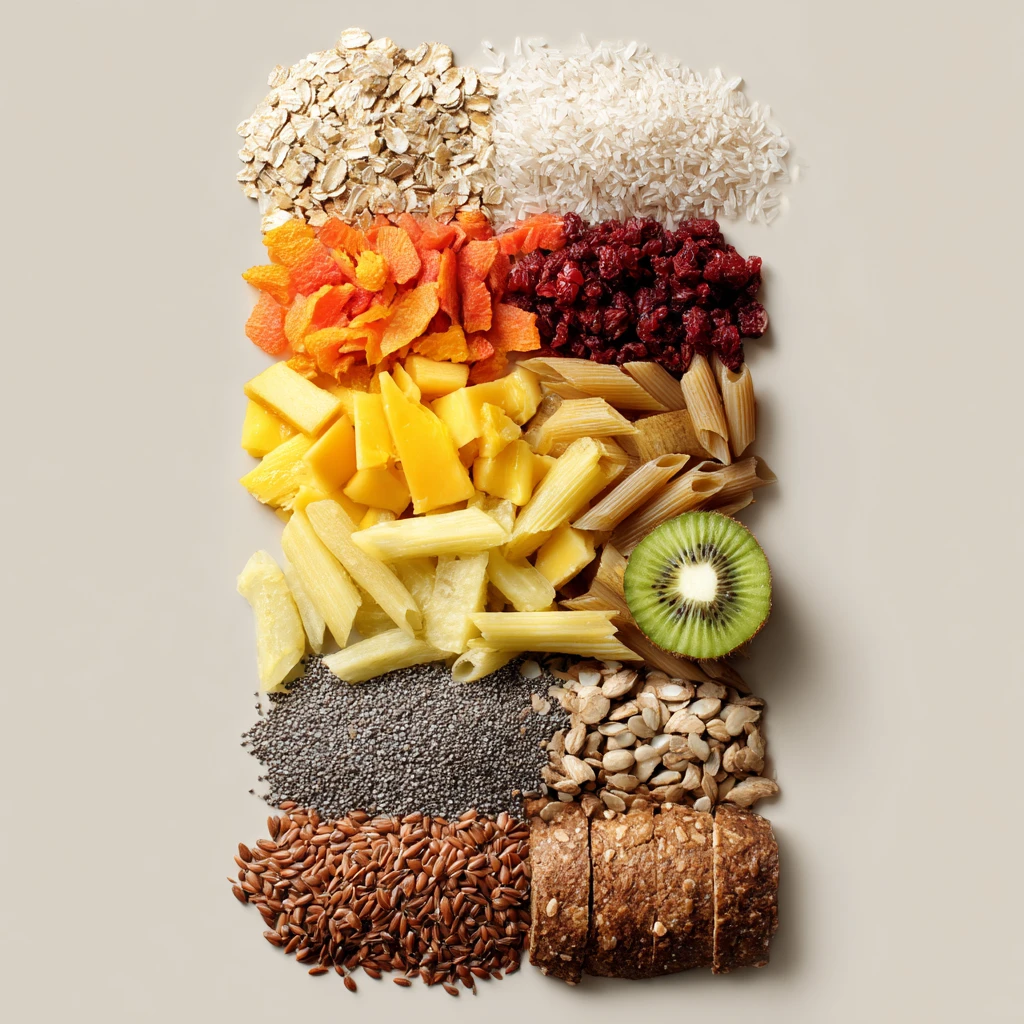
Understanding Carbohydrates: The Basics
Carbohydrates are organic compounds composed of carbon, hydrogen, and oxygen. They are broken down into glucose, the body’s main source of energy, through digestion. This glucose fuels various bodily functions, from muscle contractions during exercise to brain activity during problem-solving.
There are two main types of carbohydrates:
- Simple Carbohydrates: These consist of single (monosaccharides) or double (disaccharides) sugar molecules. They are quickly digested, leading to a rapid rise in blood sugar levels. Examples include refined sugars, syrups, and processed foods. While they can provide a quick burst of energy, they often lack essential nutrients and can contribute to energy crashes.
- Complex Carbohydrates: These are made up of long chains of sugar molecules (polysaccharides). They take longer to digest, providing a sustained release of energy and preventing sharp spikes and dips in blood sugar. Complex carbohydrates are typically found in whole, unprocessed foods and are rich in fiber, vitamins, and minerals.
The Benefits of Healthy Carbohydrates
Choosing healthy carbohydrates offers a multitude of benefits that extend far beyond just providing energy. These benefits include:
- Sustained Energy Levels: Complex carbohydrates provide a steady and consistent source of energy, preventing energy crashes and promoting focus throughout the day. The slower digestion rate ensures that glucose is released into the bloodstream gradually, avoiding the rapid fluctuations associated with simple sugars.
- Improved Digestion: Many healthy carbohydrate sources are rich in fiber, which plays a crucial role in digestive health. Fiber adds bulk to the stool, promoting regular bowel movements and preventing constipation. It also feeds beneficial gut bacteria, supporting a healthy gut microbiome, which is essential for overall health and immunity.
- Weight Management: Contrary to popular belief, healthy carbohydrates can actually aid in weight management. The fiber content in these foods promotes feelings of fullness and satiety, helping to control appetite and reduce overall calorie intake. They also help regulate blood sugar levels, which can prevent cravings and overeating.
- Enhanced Nutrient Intake: Healthy carbohydrates are often packed with essential vitamins, minerals, and antioxidants. These nutrients are vital for maintaining overall health, supporting immune function, and protecting against chronic diseases. For example, whole grains are a good source of B vitamins, while fruits and vegetables are rich in vitamins C and A.
- Improved Mood: Carbohydrates play a role in the production of serotonin, a neurotransmitter that regulates mood and sleep. Consuming healthy carbohydrates can help boost serotonin levels, promoting feelings of well-being and reducing the risk of mood swings.
Top Sources of Healthy Carbohydrates
Now that you understand the benefits, let’s explore some of the best sources of healthy carbohydrates to incorporate into your diet:
- Whole Grains: These are the superstars of healthy carbohydrate sources. Examples include:
Oats: Rich in soluble fiber, oats help lower cholesterol levels and promote heart health.
Quinoa: A complete protein source, quinoa is also a good source of fiber, iron, and magnesium.
Brown Rice: A nutritious alternative to white rice, brown rice is higher in fiber and manganese.
Whole Wheat Bread: Choose bread made with 100% whole wheat flour for maximum fiber and nutrient content.
Barley: Another excellent source of fiber, barley can help regulate blood sugar and improve digestion.
- Fruits: Nature's candy, fruits are packed with vitamins, minerals, and antioxidants, in addition to natural sugars and fiber.
Berries: Strawberries, blueberries, raspberries, and blackberries are all low in calories and high in antioxidants.
Apples: A good source of fiber and vitamin C.
Bananas: Rich in potassium and electrolytes, making them a great pre- or post-workout snack.
Oranges: An excellent source of vitamin C and antioxidants.
Pears: High in fiber and vitamin K.
- Vegetables: Especially starchy vegetables, are great source of complex carbohydrates and essential nutrients.
Sweet Potatoes: Rich in vitamin A and fiber.
Potatoes: Good source of potassium and vitamin C (opt for baked or boiled over fried).
Corn: A good source of fiber and antioxidants.
Peas: High in fiber and protein.
Winter Squash: Butternut squash, acorn squash, and other winter squash varieties are rich in vitamins A and C.
- Legumes: Excellent source of protein and fiber, legumes provide a sustained release of energy.
Lentils: A versatile and affordable source of protein and fiber.
Beans: Black beans, kidney beans, chickpeas, and other bean varieties are all packed with nutrients.
Peas: High in fiber and protein.
Incorporating Healthy Carbs into Your Diet: Practical Tips
Making the switch to healthy carbohydrates doesn’t have to be overwhelming. Here are some practical tips to help you incorporate them into your daily meals:
- Start Small: Gradually replace refined grains with whole grains. For example, switch from white bread to whole wheat bread, or from white rice to brown rice.
- Read Labels: Pay attention to the ingredient list on packaged foods. Choose products that list whole grains as the first ingredient.
- Focus on Whole Foods: Prioritize whole, unprocessed foods over processed options. This ensures you're getting the most nutrients and fiber.
- Add Fruits and Vegetables to Every Meal: Incorporate fruits and vegetables into your breakfast, lunch, and dinner. Add berries to your oatmeal, snack on an apple, or include a side salad with your meal.
- Experiment with Different Grains and Legumes: Don't be afraid to try new grains and legumes. Explore different recipes and find what you enjoy.
- Plan Your Meals: Planning your meals ahead of time can help you make healthier choices and ensure you're getting enough healthy carbohydrates.
- Snack Smart: Choose healthy carbohydrate-rich snacks, such as fruit, vegetables with hummus, or a handful of nuts and seeds.
- Be Mindful of Portion Sizes: While healthy carbohydrates are beneficial, it's still important to be mindful of portion sizes. Overeating any food, even healthy ones, can lead to weight gain.
Common Myths About Carbohydrates
Several misconceptions surround carbohydrates, contributing to their unwarranted negative image. Let’s debunk some of the most common myths:
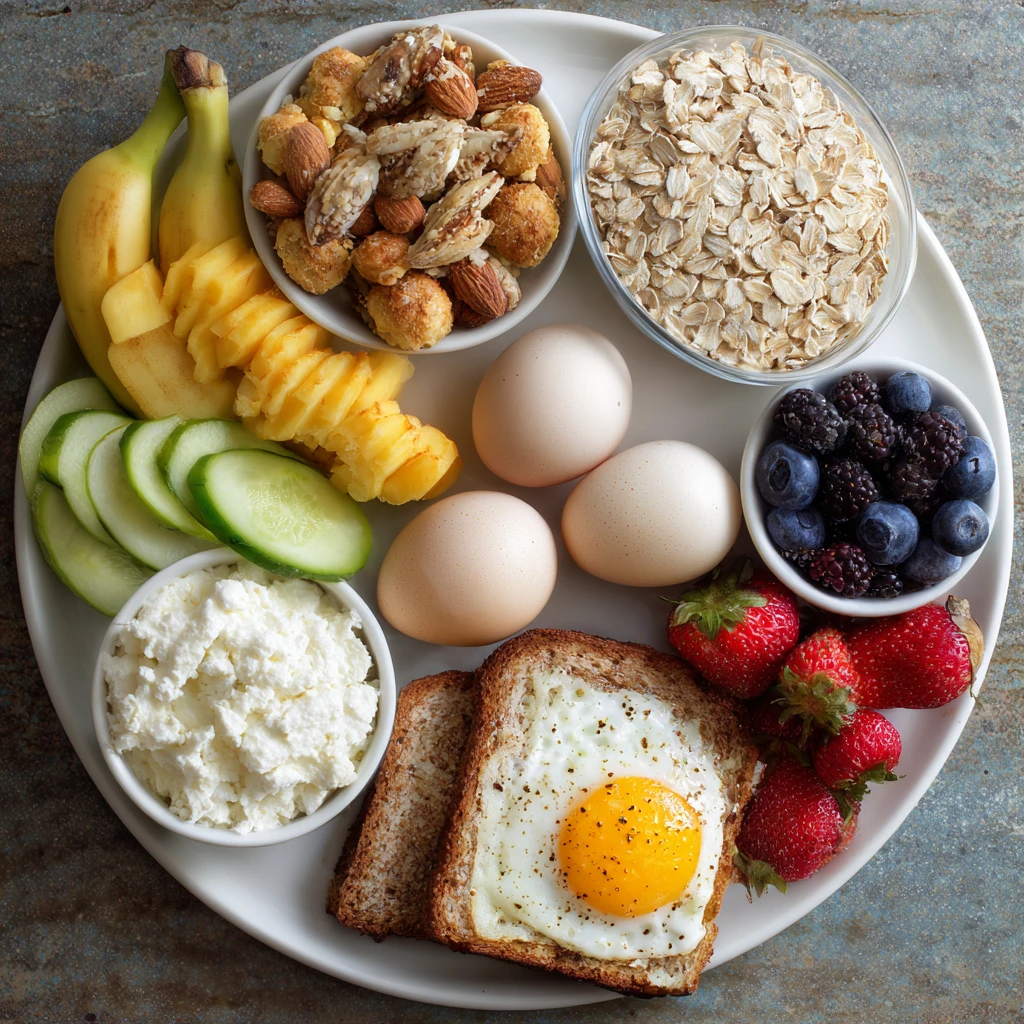
- Myth: All carbohydrates are bad for you. As we've discussed, the type of carbohydrate matters. Healthy carbohydrates, such as whole grains, fruits, and vegetables, are essential for energy and overall health.
- Myth: Carbohydrates cause weight gain. Weight gain is primarily caused by consuming more calories than you burn, regardless of the source. Healthy carbohydrates, especially those high in fiber, can actually aid in weight management by promoting satiety and regulating blood sugar.
- Myth: You should avoid carbohydrates if you have diabetes. People with diabetes can and should include carbohydrates in their diet, but they need to choose healthy sources and manage their portion sizes. Whole grains, fruits, and vegetables are good choices for people with diabetes.
- Myth: A low-carbohydrate diet is the healthiest option for everyone. While low-carbohydrate diets can be effective for some people, they are not necessarily the healthiest option for everyone. The ideal diet depends on individual needs and preferences.
- Myth: Fruit is unhealthy because it contains sugar. The sugar in fruit is natural and comes packaged with fiber, vitamins, and minerals. These nutrients help slow down the absorption of sugar, preventing blood sugar spikes.
FAQ
Q: What are the best times to eat carbs for energy?
A: Eating carbohydrates before physical activity can provide fuel for your muscles. Consuming them after exercise can help replenish glycogen stores. For sustained energy throughout the day, include healthy carbs in each meal.
Q: How many carbs should I eat per day?
A: The recommended daily intake of carbohydrates varies depending on individual factors like activity level, metabolism, and health goals. A general guideline is 45-65% of your total daily calories should come from carbohydrates. Consulting a registered dietitian can provide personalized recommendations.
Q: Are potatoes healthy carbs?
A: Yes, potatoes can be part of a healthy diet. They are a good source of potassium, vitamin C, and fiber (especially if you eat the skin). Opt for baked, boiled, or roasted potatoes over fried versions.
Q: Which carbs should I avoid?
A: Limit your intake of refined carbohydrates like white bread, pastries, sugary drinks, and processed snacks. These offer minimal nutritional value and can lead to blood sugar spikes and energy crashes.
Q: Can I eat carbs on a weight loss diet?
A: Yes, you can definitely eat carbs while trying to lose weight. Focus on incorporating healthy, high-fiber carbs that promote fullness and satiety. Choose whole grains, fruits, vegetables, and legumes. Pay attention to portion sizes.
